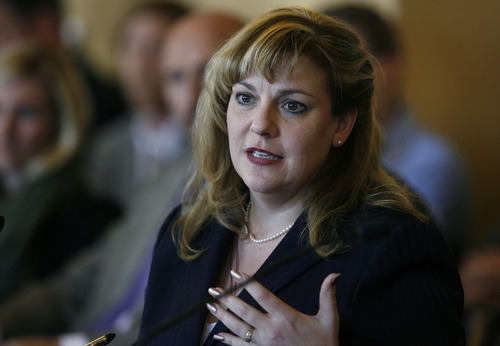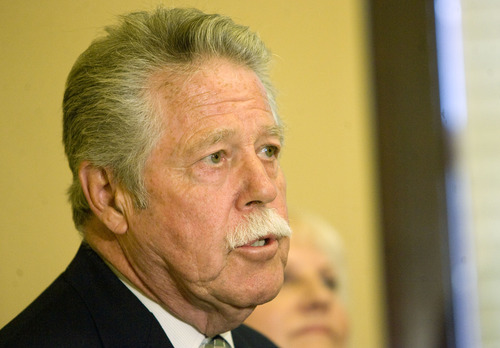This is an archived article that was published on sltrib.com in 2014, and information in the article may be outdated. It is provided only for personal research purposes and may not be reprinted.
Right now, more than 54,000 families in Utah are struggling – choosing between groceries and medicine, between rent and a doctor's visit.
These mothers, fathers, brothers and sisters work overtime but still do not make enough to qualify for health care coverage. They pay their taxes and support their local government; however, they are not supported in return. In Utah, their hard work doesn't qualify them for support.
Due to our choices, these families don't qualify for subsidies. They are out in the cold, without coverage, and without options.
Gov. Gary Herbert has now released a plan that essentially funds a full expansion with expansion money through a system of block grants. The plan lasts three years, and comes with all sorts of strings attached including a premium payment plan for individuals who earn $15,000 a year.
Our goal has always been to provide access to health care for our working neighbors, and a brief overview of this plan indicates that it may accomplish that goal. We remain cautious, however, due to our previous experience with block grant funding, and the stringent requirements not yet approved by the federal government.
What continues to be ignored is the collection of knowledge and expertise gathered by the Utah Department of Health at the request of the governor.
A 143-page cost-benefit analysis shows the full expansion is the most cost-effective option for the state in the long run. Another analysis, developed by BYU economics professor Sven Wilson, a guest of the governor's Medicaid Working Group, has also been shelved. In his analysis, Wilson expressly noted that it made no economic sense for the state to refuse expansion.
A full Medicaid expansion would bypass the detailed and difficult approval process that "Healthy Utah" now faces. Accepting Medicaid expansion means money begins flowing back to Utah now, people gain access to options now, and there is no approval necessary.
Access means allowing people who previously were excluded a way into the fold, not another door shut in their face. Access means giving Utahns the opportunity to use their very own federal tax dollars the way they see fit.
This isn't about federalism, it's about families.
Full expansion provides more than access to affordable health care. It provides an economic boost to Utah that is unfortunately ignored.
Expanding access is a net gain – meaning Utah makes money over the long haul. Full expansion will save Utah more than $25 million and bring back more than $115 million of our Utah tax money.
We understand the political realities within which we operate. Most important to us is getting uninsured Utahns covered now.
Out of eight options vetted by the governor's Medicaid Working Group, three were recommended by the Health System Reform Task Force. Out of those three, only one compromise is remotely acceptable.
It provides traditional Medicaid coverage to those who are most needy, earning less than $12,000 per year, and offers premium subsidies to many more who cannot afford to pay for insurance on their own. Only a month before session, legislators from both parties working in the Task Force agreed to this option.
To truly bring down the budget, to achieve economic development, we need to drive down health care costs. The only way to do that is provide comprehensive coverage to all Utahns.
Each day the state delays expansion, more people suffer and are unable to work due to untreated health conditions. Each day the state delays expansion, the state spends more on untreated mental health and substance abuse. And each day the state delays expansion, Utahns forgo the economic benefits flowing from the use of taxes and fees they have already paid and will pay the federal government.
If we act now, Utahns can gain real access. That means no more waiting and procrastinating.
It means we act now, we receive now, and we get our money back. It means our neighbors, friends and family get the coverage they need, and we get the Utah we deserve.
Rep. Jennifer Seelig is House Democratic caucus leader. Sen. Gene Davis is Senate Democratic caucus leader.





